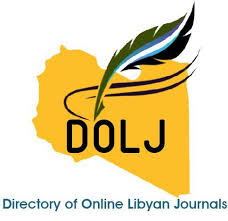Perceptions of Libyan Physiotherapist on Job Satisfaction
A Qualitative Study
DOI:
https://doi.org/10.54361/ljmr.v14i1.06Keywords:
Physiotherapy, hospital administration, job satisfaction, LibyaAbstract
Advancing the physiotherapy services in Libya are requiring to focus on many aspects. As employees, physiotherapists in Libya would provide a better service if they were more satisfied with their jobs. The aim of this study was to explore the job satisfaction of the physiotherapy profession in the Central Hospital of Tripoli (CHT) in Libya. This qualitative study is frame-worked within a focus ethnographic paradigm that was done by recruiting seven participants (4 males and 3 females). They were all Libyan physiotherapists who worked in CHT in Libya. Online semi-structured interviews were used as a means of data collection by applying a specific topic guide. Data analysis was performed by applying the framework analysis approach. The study has determined 6 main themes with 17 subthemes. These themes were: financial shortage, professional relationships, organisational, outcomes, passion towards the profession and safety and security. The study observed that the most unsatisfactory aspect of their work was the lack of autonomy from the hospital administration, while the participants felt that their job is challenging in a positive sense regarding their interaction with their patients. All participants were satisfied that all statements were valid and measured significant aspects of job satisfaction in physiotherapy
Downloads
References
American Libyan Chamber of Commerce and Industry (2013) http://www.alcci.org/libyan-health-care-opportunities/[online]. Last accessed at 25 March 2015.
Mowday RT (1984) Strategies for adapting to high rate of employee turnover. Hum Resour manage. 23(4): 365-380.
Aziri B (2011) Job satisfaction: A literature review. [online]. Management research and practice. 3(4): 77-78.
Hoppock R (1935) Job Satisfaction. Harper and Brothers, New York, pp. 47.
Vroom VH. (1964) Work and motivation. New York: Wiley.
Wernimont F (1966) Intrinsic and Extrinsic factors in job satisfaction. J Appl Psychol. 50 (1): 41-50.
Sloane PJ, Williams H. (1994) Job Satisfaction, Comparison Income, and Gender Differences in Earnings. University of Aberdeen, mimeo.
Lévy-Garboua L, Montmarquette C (1994) On Reported Job Satisfaction: A Test of Subjective Well-Being Models and a New Interpretation. Université Paris I, mimeo.
Watson R, Storey D, Wynarczyk P, Keasey K, Short H (1992) An Empirical Analysis of the Salaries and Satisfaction Levels of Managers in Small and Medium-Size UK Enterprises. Warwick Business School, mimeo.
Freeman RB (1978) Job Satisfaction as an Economic Variable. American Economic Review. 68: 135-141.
Borjas GJ (1979) Job Satisfaction. Wages and Unions. Journal of Human Resources. 14: 21-40.
Meng R (1990) The Relationship Between Unions and Job Satisfaction. Applied Economics. 22: 1635-1648.
Miller P (1990) Trade Unions and Job Satisfaction. Australian Economic Papers. 29: 226-248.
Harter JK, Schmidt FL, Asplund JW, Kilham EA, Agrawi S (2010) Causal Impact of Employee Work Perceptions on the Bottom Line of Organizations. Perspectives on Psychological Science. 5(4): 378-389.
Peccei R (2004) Human Resource Management and the search for the happy workplace, Inaugural Addresses Research in Management Series: Erasmus Research Institute of Management: http://publishing.eur.nl/ir/repub/asset/1108/EIA-2004-021-ORG.pdf.
Ogiwara S, Araki H (2006) Job Satisfaction among Physiotherapists in Ishikawa Prefecture, Japan. Journal of Physical Therapy Science. 18(2): 127-132.
Reisel D, Probst M, Chia S, Maloles C, König C (2010) The effect of job insecurity on job satisfaction, organizational citizenship behaviour, deviant behaviour and negative emotions of employees. Int. Studies of Mgt. and Org. 40(1): 74-91.
Downey H, Hellriegel D, Slocum J (1975) Congruence between individual needs, organizational climate, job satisfaction and performance. The Academy of Management Journals. 18(1): 149-155.
Physiotherapy Board of New Zealand (1999) Registration Requirements Competencies and Learning Objectives. Wellington: Physiotherapy Board of New Zealand. 93: 0-478.
Dorland WA. Dorland's Illustrated Medical Dictionary. 28th ed. Philadelphia: Saunders;1994
Bebeau MJ, Born DO, Ozar DT (1993) The development of a professional role orientation inventory. J Am Coll Dent. 60(2): 27-33.
Okerlund VW, Jackson PB, Parsons RJ (1994) Factors Affecting Recruitment of Physical Therapy Personnel¬ in Utah. Physical Therapy.74 (2): 177-184.
Rozier CK, Raymond MJ, Goldstein MS, Hamilton BL (1998) Gender and Physical Therapy Career Success Factors. Phys Ther. 78: 690-704.
Eker L, Tuzun EH, Daskapan A, Surenkok O (2004) Predictors of job satisfaction among physiotherapists in Turkey. J Occup. Health. 46: 500-505.
Oyeyemi Y (2001) Job Satisfaction Traits of Nigerian Physical Therapists. Physiotherapy Theory and Practice. 17: 257-268.
Oyeyemi Y, Oyeyemi AL, Maduagwu SM, Rufai AA, Aliyu SU (2012) Professional Satisfaction and Desire to Emigrate among Nigerian Physiotherapists. Physiotherapy Canada. 64(3): 225-232.
Ross E (2001) Love the Job, Business Review Weekly. 23(4): 56-59.
Crow M, Sandra H (1995) Can't Get No Satisfaction. Leadership & Organization Development Journal. 16(4): 34-38.
Patton MQ (1990) Qualitative Evaluation and Research Methods. 2nd ed. Newbury Park, CA: Sage Publications, Inc.
Yin RK (1989) Case study research: Design and methods. 2nd ed. Newbury Park, CA: Sage.
Knoblauch H (2005) Focused ethnography. Forum Qualitative Social Research. 6(3): 44.
Mason J (2002) Qualitative Researching. London, Sage.
Holloway I (2008) A‐Z of Qualitative Research in Healthcare and Nursing. Blackwell, Oxford.
Alvarez R, Urla J (2002) Tell Me a Good Story: Using Narrative Analysis to Examine Information Requirements Interviews during an ERP Implementation. The DATA BASE for Advances in Information Systems. 33(1): 38-52.
Pope C, Ziebland S, Mays N (2000) Qualitative research in health care: Analysing qualitative data. BMJ. 320: 114-116.
Mays N, Pope C (2000) Qualitative research in health care. Assessing quality in qualitative research. BMJ. 320(7226): 50-52.
Miles M (1979) Qualitative data as an attractive nuisance: The problems of analysis. Administrative Science Quarterly. 24: 590-601.
Ritchie J, Spencer L (1994) Qualitative data analysis for applied policy research. Analysing Qualitative Data, Routledge, London.
Charmaz K (2006) Constructing Grounded Theory: A Practical Guide Through Qualitative Analysis. London.
Glaser A, Strauss AL (1967) The discovery of grounded theory. Chicago: Aldine.
Speakman HGB, Pleasant JM, Sutton GB (1996) The job satisfaction of physical therapists. Physiotherapy Research International. 1(4): 247-254.
Broski DC, Cook S (1978) The job satisfaction of allied health professionals. Journal of Allied Health. 7:281-287.
Barnes MR, Crutchfield CA (1977) Job satisfaction–dissatisfaction: a comparison of private practitioners and organizational physical therapists. Physical Therapy. 5: 35-41.
May SJ (2001) Patient satisfaction with management of back pain. Part 1: What is satisfaction? Review of satisfaction with medical management.
Lockwood NR (2007) Leveraging employee engagement for competitive advantage: HR’s strategic role. SHRM Research Quarterly.
Robson C (2011) Real world research: a resource for users of social research methods in applied settings. 3rd ed. Chichester: Wiley.
Ritchie J, Lewis J (2003) Qualitative Research Practice (Eds): A Guide for Social Science Students and Researchers. London: Sage Publications.
Downloads
Published
Issue
Section
License
Copyright (c) 2020 Husam M Belhaj, Ahlam A Zidan, Osama N Aljahmi (Author)

This work is licensed under a Creative Commons Attribution-NonCommercial-NoDerivatives 4.0 International License.
Open Access Policy
Libyan journal of medical Research (LJMR).is an open journal, therefore there are no fees required for downloading any publication from the journal website by authors, readers, and institution.
The journal applies the license of CC BY (a Creative Commons Attribution 4.0 International license). This license allows authors to keep ownership f the copyright of their papers. But this license permits any user to download , print out, extract, reuse, archive, and distribute the article, so long as appropriate credit is given to the authors and the source of the work.
The license ensures that the article will be available as widely as possible and that the article can be included in any scientific archive.
Editorial Policy
The publication of an article in a peer reviewed journal is an essential model for Libyan journal of medical Research (LJMR). It is necessary to agree upon standards of expected ethical behavior for all parties involved in the act of publishing: the author, the journal editorial, the peer reviewer and the publisher.
Any manuscript or substantial parts of it, submitted to the journal must not be under consideration by any other journal. In general, the manuscript should not have already been published in any journal or other citable form, although it may have been deposited on a preprint server. Authors are required to ensure that no material submitted as part of a manuscript infringes existing copyrights, or the rights of a third party.
Authorship Policy
The manuscript authorship should be limited to those who have made a significant contribution and intellectual input to the research submitted to the journal, including design, performance, interpretation of the reported study, and writing the manuscript. All those who have made significant contributions should be listed as co-authors.
Others who have participated in certain substantive aspects of the manuscript but without intellectual input should only be recognized in the acknowledgements section of the manuscript. Also, one of the authors should be selected as the corresponding author to communicate with the journal and approve the final version of the manuscript for publication in the LJMR.
Peer-review Policy
- All the manuscripts submitted to LJMR will be subjected to the double-blinded peer-review process;
- The manuscript will be reviewed by two suitable experts in the respective subject area.
- Reports of all the reviewers will be considered while deciding on acceptance/revision or rejection of a manuscript.
- Editor-In-Chief will make the final decision, based on the reviewer’s comments.
- Editor-In-Chief can ask one or more advisory board members for their suggestions upon a manuscript, before making the final decision.
- Associate editor and review editors provide administrative support to maintain the integrity of the peer-review process.
- In case, authors challenge the editor’s negative decision with suitable arguments, the manuscript can be sent to one more reviewer and the final decision will be made based upon his recommendations.















